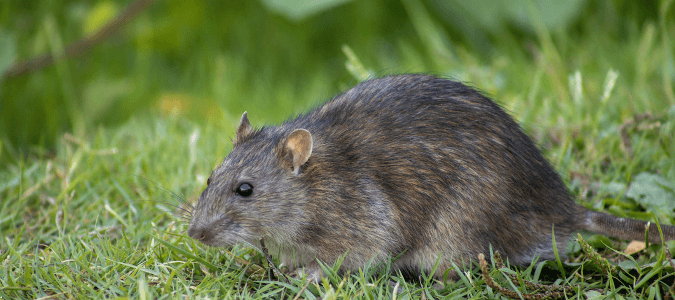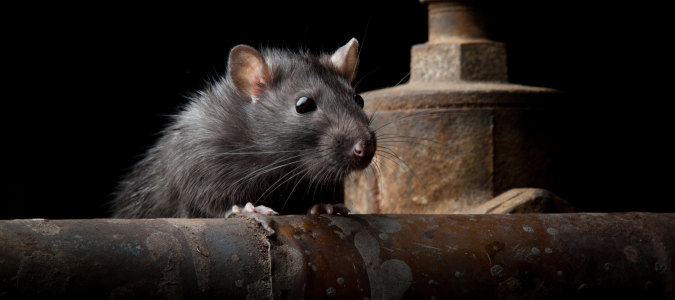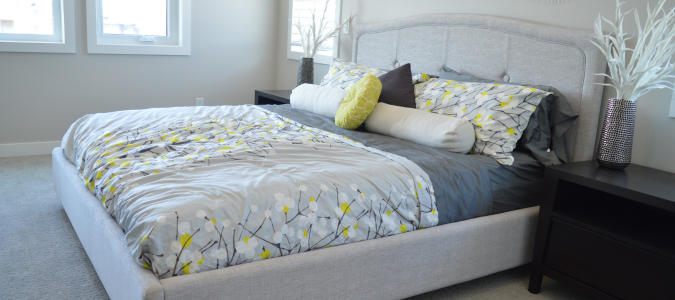Will Rats Bite?

Will Rats Bite?
Will rats bite? The short answer is yes, rats can and will bite, especially when they feel threatened or cornered.
It’s important to note that rats will try to run away and hide before they resort to biting. In fact, as nocturnal animals, rats will try to avoid human contact at all costs if they can. However, if they feel threatened or feel that their nest is threatened, they can become aggressive.
One example of rats feeling cornered is when they’ve been trapped and don’t have an escape route. While trapping rats may seem like an effective way to deal with an infestation, homeowners should leave it up to the professionals.
Another instance of rats resorting to biting is when you try to handle them. It’s crucial to stay far away from the rats and not touch them. Rats can carry a variety of diseases that are dangerous to humans and pets, so it’s important to avoid rats.
Some diseases that rats carry include rat bite fever, salmonella, leptospirosis and hantavirus. Additionally, rats have sharp teeth, and their bites are quite painful.
Instead of dealing with a rat infestation yourself, call in a professional pest control service. The experts have the right tools to deal with the infestation.
Signs of a Rat Infestation
Rats are nocturnal animals, so it’s rare to see them out of their nests during the day. They are also incredibly swift and stealthy. They do their best to avoid humans and other animals. When they do encounter them, they often quickly scurry away.
You might not see rats in your home, but there are other signs of a rat infestation that you should look out for.
The most obvious sign is seeing rat droppings around your home. They are typically left along the pathway from the rats’ nest to their food source. Rat droppings are small, dark-colored and pellet-shaped.
Another sign of a rat infestation is spotting their gnaw marks on household items, such as wires, furniture and food packaging. Rats gnaw to keep their ever-growing teeth short. Unfortunately, they can cause significant damage to your possessions. Chewed-through wires can even cause house fires.
While you might not see them often, you may hear rats in ceilings and running through your walls, especially at night. It will sound like scratching as they move through your walls, ceilings, attics and other out-of-sight places around your home.
Next, you may stumble upon a rat nest in a secluded area of your home. Rats build their nests using insulation, fabric and shredded paper. They are typically hidden in attics or behind walls.
Another thing that rats leave behind is grease marks. If you see grease smudges or dirt spots along your floors, floorboards and walls, they could be from rats. Like droppings, you will most likely see them between the well-worn path between the nest and the rat’s food source.
Lastly, another indication of a rat infestation is if your pet starts behaving unusually. Dogs and cats can become agitated when rats are around, so pay attention to their behavior and take note if they start acting off.
Contact a pest control expert if you see any signs of a rat infestation. Do not wait until you see an actual rat to take action.

Will Sleeping With Lights On Keep Rats Away?
Rats are nocturnal animals that prefer to move around under the cover of night; however, sleeping with lights on will not keep rats away.
While it makes logical sense that rats would not like being in the light, it is not enough to discourage them from moving around your home at night. Additionally, it is not enough to deter a rat infestation altogether.
Rats avoid light as much as possible but are highly adaptable creatures that prioritize finding food, water sources and shelter. Unfortunately, rats already in your home will not stop moving around just because there are lights on.
Leaving the lights on at night could do more harm than good. For example, it may cause the rats to adjust their activity and find more secluded areas to move around at night. It could also disrupt your sleep and cause more stress.
Effective Ways to Deter Rats
Instead of leaving the lights on, try the following methods to deter rats from getting into your home in the first place. Start by sealing up all potential entry points into your home.
Rats are small creatures that can enter through openings as small as a quarter, so be vigilant about locating tiny openings around your home that they could use to get inside. Make sure you look around your doors, windows, pipes and vents. Seal up all holes with caulk.
Next, eliminate their potential food sources. Do not leave food on the counters, and clean up all spills and crumbs. Keep all pantry food in airtight containers that rats cannot gnaw through. Take your trash out regularly and keep a tight lid on all your trash cans indoors and outdoors. Lastly, put away any pet food or bird seed at night.
You should also eliminate their water sources. Make sure your pipes and faucets don’t drip, pick up pet water bowls and watch the moisture levels in your basement or crawl spaces.
Keeping your home clean and decluttered is another effective way to deter a rat infestation. Rats love to hide and build nests in cluttered areas, so it’s common to find rats in garages.
The cleaner you keep your home, the less likely rats will take up residence. This tip especially applies to your attic, garage and basement since those are secluded areas where rats like to nest.
For more tips to deter rats, contact a local pest control service. They can inspect your home for openings, put prevention methods in place and help you identify roof rats versus mice.

Will Rats Crawl Into Your Bed?
There are several downsides to a rat infestation, and many homeowners fear rats crawling around on them in their beds at night. Luckily, it’s rare for rats to crawl into your bed; however, it can happen if the infestation is bad enough and the rats feel comfortable in your home.
Rats are excellent climbers, so it’s not out of the realm of possibility that they could get into your bed. However, it is unlikely.
This is because rats are typically only active at night, and they are on a mission to find food and water sources. If they cannot find anything and are desperate, they may crawl into your bed during their search.
Another reason rats might make their way into your bed is because your bed is around cluttered areas or near their food or water source. However, rats generally avoid contact with humans to keep themselves safe.
The real downside of a rat infestation is not whether they will crawl into your bed but whether they will cause property damage. Rats can also spread diseases, create unsanitary conditions, and cause stress for homeowners.
If you’re dealing with a rat infestation, contact a pest control expert to handle the problem.
Kick Rats Out of Your Home
Rats are unsanitary pests that can cause property damage, transmit dangerous diseases and distress you and your pets. If you have rats in your home, working with a pest control service is the best way to deal with the problem.
Chem-Free Can Handle Your Rodent Problems
Homeowners looking for a natural, holistic and humane approach to rodent control can count on Chem-Free for an effective solution. Our licensed and experienced pest control specialists can handle any rodent or pest problem, no matter how extensive or complicated it might be. Best of all, when you work with Chem-Free, you know you’re in good hands, because we carefully consider the impact on the environment, along with that of every person and pet living in your home, in every pest control product and method we use.
Need Help Managing Pests?
Chem-Free offers both effective, low-impact pest control options and preventative measures to help avoid future infestations. Contact us today for a free estimate!


